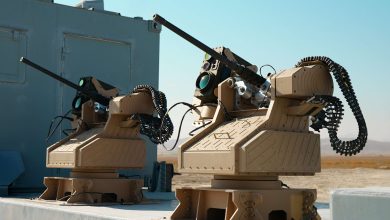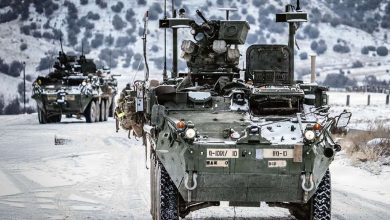
Rheinmetall Unveils Groundbreaking Infantry Fighting Vehicle Production in Hungary
Rheinmetall’s cutting-edge Lynx infantry combat vehicle has attained its latest interim milestone: right at the beginning of 2023, low-rate initial production (LRIP) commenced in NATO ally Hungary, the vehicle’s inaugural customer. Pre-series manufacturing is a crucial achievement, which also encompasses the construction of the Lance medium-caliber turret alongside further variants of the Lynx. The initiation of full-rate production (FRP) is anticipated for July 2023. The recruitment of skilled workforce and the arrival of technical gear for the Lynx center of excellence is currently in full momentum.
The Hungarian defense ministry engaged with Rheinmetall in September 2020 to deliver combat vehicles and supporting services valued at over €2 billion. During the initial production phase, Hungary will receive 46 Lynx IFVs and command & control units as well as nine Bergepanzer 3 Büffel armored recovery vehicles, all manufactured in Germany. A subsequent phase will see a collaborative venture in Hungary produce an additional 172 Lynx IFVs and combat support units. The first of these vehicles are expected to be delivered by 2024. Beyond the armored combat vehicles, the supply scope incorporates ammunition, logistical services, as well as 16 trucks.
A state-of-the-art facility for this pioneering combat vehicle is currently underway in Zalaegerszeg, where it is integrated into the ZALAZone industrial complex. It features contemporary assembly lines, a paint shop, internal logistical systems, and an automated warehouse. Additional facilities include a powerpack testing area, an EMC chamber, a climate-testing chamber, an underground firing range, and a dedicated test track. This center of excellence will not only enhance and sustain Hungary’s capacity to innovate and manufacture advanced combat vehicles but will also bolster the nation’s economy. Rheinmetall’s newly recruited Hungarian personnel are already engaged in assembly of the Lynx in Germany, acquiring valuable insights and expertise that will facilitate the exchange of knowledge and technology. On October 15, 2022, Rheinmetall delivered the first of a total of 209 Lynx vehicles to the Hungarian armed forces. The Lynx is set to establish the backbone of Hungary’s mechanized infantry division.









